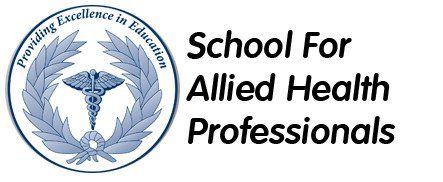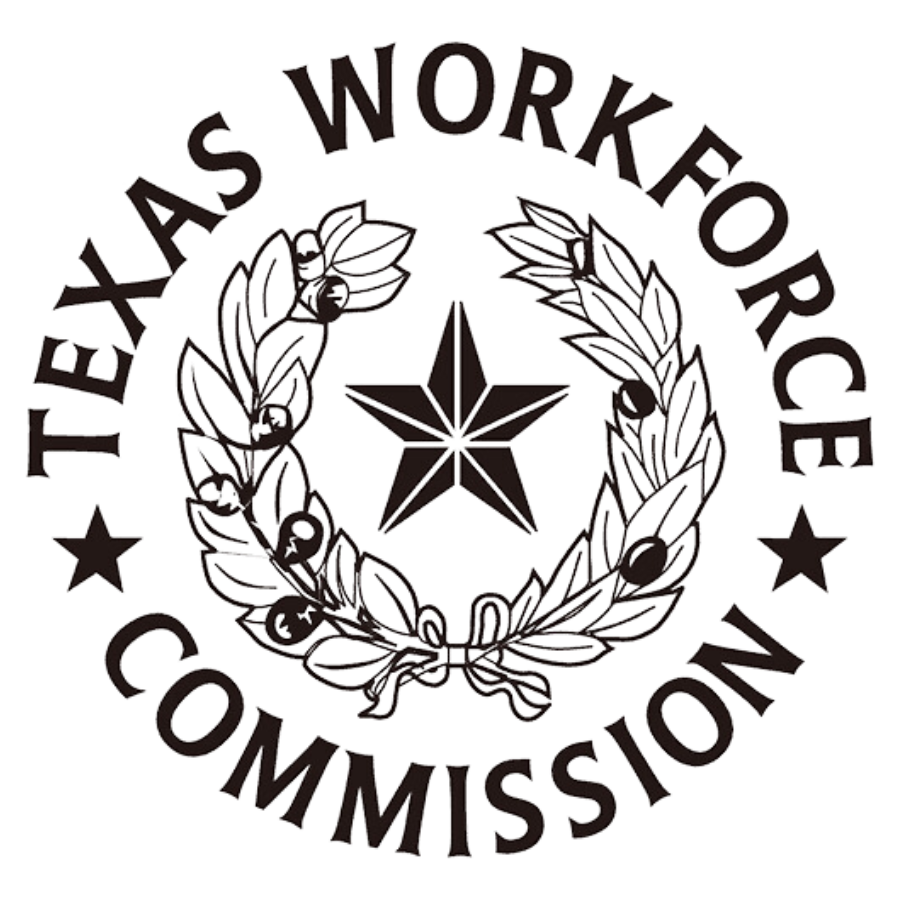MEDICAL INSURANCE & CODING SPECIALIST
• • •
ADMISSION REQUIREMENTS
- Applicants may be admitted if they satisfy the following: They are a high school graduate or have certification of a high school equivalency (GED)
- They are at least 17 years of age (applicants under the age of 18 require the written permission from a parent or legal guardian in order to enroll)
- Must achieve a passing score of 12 on the Entrance Assessment Test. The test utilized by the School for Allied Health Professionals is the Wonderlic Scholastic Level Exam. Wonderlic has been in business since 1937 and is a nationally recognized exam used in schools to help accurately select students and predict training success.
PROGRAM OBJECTIVE
The Medical Insurance and Coding Specialist is trained to work with health- related information and the systems used to collect, process, store, retrieve, and communicate information for the support operations, management, and decision making in a medical facility or related industry. As computerization of information advances the Medical Insurance and Coding Specialist is vital to the processing of patient care data analysis. Students receive instructional and hands-on training in medical terminology, law and ethics, anatomy and physiology, insurance billing and coding, insurance claims and reports, medical office procedures, records management software, accounts receivable, posting accounts and Internet.
CAREER OPPORTUNITIES
Employment of Medical Insurance and Coding Specialists is expected to grow much faster than the average for all occupations due to rapid growth in the number of medical tests, treatments, and procedures that will be increasingly scrutinized by third party payers, regulators, courts, and consumers. The fastest employment growth and a majority of the new jobs are expected in offices of physicians, due to increasing demand for detailed records, especially in large group practices. Rapid growth also is expected in nursing care facilities, home healthcare services, mental healthcare facilities, rehabilitation centers, insurance companies, consulting firms and outpatient care centers.
CLASROOM PROCEDURES
Each course is a unique study allowing the student to have hands-on training in the classroom and lab. The classroom is set up for the combination of class and lab (simulating a business office). Each course will allow the student to learn the fundamentals and the structure of a Medical Insurance and Coding Specialist. The Classroom lecture/lab is designed to help the students understand and utilize the importance of Medical Insurance, Insurance Management, Office Procedures/ Billing, Principles of Health Insurance, Anatomy, Physiology and Medical Terminology, ICD-10, CPT-4 Coding, Professional Development and Professional Coding Certification.
CLASS SCHEDULES
Students will attend class Monday through Friday. Two class schedules are available to students each lasting four hours in duration. Session I will be held from 9:00 a.m. through 1:00 p.m. Session II will be held from 5:00 p.m. through 9:00 p.m.(Time is subject to change). There will be a ten-minute break every hour beginning at ten minutes until the hour.
EXTERNSHIP
The externship is a crucial part of the students overall training to become a Medical Insurance and Coding Specialist. The externship following the successful completion of all classroom training and consists of 160 unpaid hours. Students will work Monday through Friday for eight (8) hours each day, for a total of four (4) weeks. The maximum number of externs expected in the program at any one time is thirty (30). Students will have to make up for any externship hours missed. Students will work in either a medical office or hospital setting where they will perform administrative tasks such as, writing communications, processing mail, bookkeeping, machine transcriptions, record keeping and filing, and completing and processing medical insurance claim forms. Evaluations of externs with verbal written critique by the work site supervisor will occur weekly. The externship coordinator will visit the externship site at least once per week. Externs are required to attend a weekly meeting on the school’s campus every Friday to discuss their observations and experiences. Externs are required to maintain a daily journal to be discussed during their weekly meetings. Students are required to write a final report that will be turned in on the day of their externship meeting.
Graduates are able to secure employment in Medical Offices, Dental Offices, Hospitals, and Insurance Processing Centers, Specialty Clinics and be Independent Transcriptionists.
PROFESSIONAL DUTIES
- Billing Private and Third Party
- Insurance Filing/Processing/Forms
- Transcription
- Referrals to Specialty Clinics
- Diagnostic Coding
- Office Accounting
- Front Office Procedures
- Scheduling Surgeries
- Office Management
- Posting Fees and Charges/Payments
- H.I.P.A.A.
OCCUPATIONAL OUTCOMES
- Transcriptionist
- Dental/Medical Billing Specialist
- Medical Records Specialist
- Medical/Dental Accounting
- Medical/Dental Insurance Specialist
POTENTIAL EARNINGS
Average starting salaries could vary in range depending on previous work experience, continuing education and location. Please refer to www.salary.com for the most up to date information regarding the salary range for Medical Insurance and Coding Specialists.
COURSE DESCRIPTIONS
MICS101 -Anatomy & Physiology and Pharmacology
Clock Hours: 50 Lecture/ 30 Lab/ 0 Extern/ Semester Credit Hours: 4.0
This course includes lectures on Anatomy and Physiology and Medical Terminology, covering structure and function of the human body. General issues regarding organization and structure including orientation to the human body, anatomical descriptors, cells, tissues and both mechanical and visceral organizational structures are discussed.
Prerequisites: None
MICS102 – Medical Terminology, Anatomy & Physiology and Other Studies
Clock Hours: 50 Lecture/ 30 Lab/ 0 Extern/ Semester Credit Hours: 4.0
This course introduces students to the language and nomenclature of medicine via study of the structure, meaning, and use of medical terms related to diseases, operations, and the human body. This course continues in the study of human diseases, the processes that cause disease, and ways in which disease manifests as signs and symptoms, physical findings and laboratory findings.
Prerequisites: None
MICS103 – Diagnostic and Procedural Coding and Outpatient Reimbursement Methodology
Clock Hours: 50 Lecture/ 30 Lab/ 0 Extern/ Semester Credit Hours: 4.0
Students will learn the theory and practice of medical coding for professional services, procedures and supplies using CPT (Current Procedure Terminology) and HCPCS Level II system and modifiers. Students will apply coding conventions and guidelines and follow instructional notes for professional provider evaluation and management & surgical cases. In addition to radiology, laboratory and anesthesia reports, outpatient medical records and scenarios will be utilized to access student knowledge of and ability to apply NCCI edits.
Prerequisites: None
MA104 ICD-10-CM, ICD-10-CM/10PCS Coding and Inpatient Reimbursement Methodology
Clock Hours: 50 Lecture/ 30 Lab/ 0 Extern/ Semester Credit Hours: 4.0
At the completion of the course the student should be able to demonstrate how to use ICD-10-CM book and CPT book; demonstrate how to code various procedures and diagnoses related to body systems; demonstrate how to use various modifiers demonstrate how to code evaluation and management, anesthesia, pathology and laboratory, radiology and medicine; demonstrate proper procedures for reimbursement methodologies and coding for medical necessity
Prerequisites: None
MICS – 105 Principles of Health Insurance and Insurance Management
Clock Hours: 50 Lecture/ 30 Lab/ 0 Extern/ Semester Credit Hours: 4.0
Upon completion of this course the student will have an advanced working knowledge of how to use various billing software programs, and identify the basic elements of insurance plans. This course also identifies elements of the revenue cycle as it relates to inpatient and outpatient reimbursement, insurance procedures and Medicare regulations. The focus is on disease and procedural coding for the IPPS, DRG, APC and UHDDS definitions, guidelines, and conventions and correct sequencing for optimal reimbursement.
Prerequisites: None
MICS -106 Practice Management and Health Data Management
Clock Hours: 50 Lecture/ 30 Lab/ 0 Extern/ Semester Credit Hours: 4.0
Fundamental components of this course include introduction of the medical administrative professional to integration of electronic health records systems into professional practice. In addition the student will receive instruction in medical office accounting, revenue cycle management techniques, evaluating the practice assets, human resource management, developing office policy and business ethics and legal requirements necessary for establishing and maintaining the medical practice as a viable business.
Prerequisites: None
MICS199 – Externship
Clock Hours: 0 Lecture/ 0 Lab/ 160 Extern/ Semester Credit Hours: 3.5
Externship follows the successful completion of all the classroom training. The externship program will consist of a total of 160 unpaid hours (8 hours per day, 5 days per week). Students will be directly supervised by appropriate medical coding staff on site. Upon completion of the externship, students will have demonstrated competency in the various areas of medical billing, coding and related medical office administration responsibilities.
Prerequisites: MICS101, MICS102, MICS103, MICS104, MICS 105, MICS 106
SCHOOL FOR ALLIED HEALTH PROFESSIONALS
UNDERGRADUATE CERTIFICATE IN MEDICAL ASSISTANT
PROGRAM LENGTH: 7 MONTHS
No other costs provided.Visit website for more program cost information: /sfahp.com
Graduates who got jobs
100% of program graduates got jobs according to the state job placement rate7
Program graduates are employed in the following fields:
Medical Records and Health Information Technicians: http://onetonline.org/link/summary/29-2071.00
Licensure Requirements6
This program meets licensure requirements in
Texas*
*State requires students to sit for licensure EXAM








